“ONE SENTENCE — AND HIS CAREER WAS OVER.”
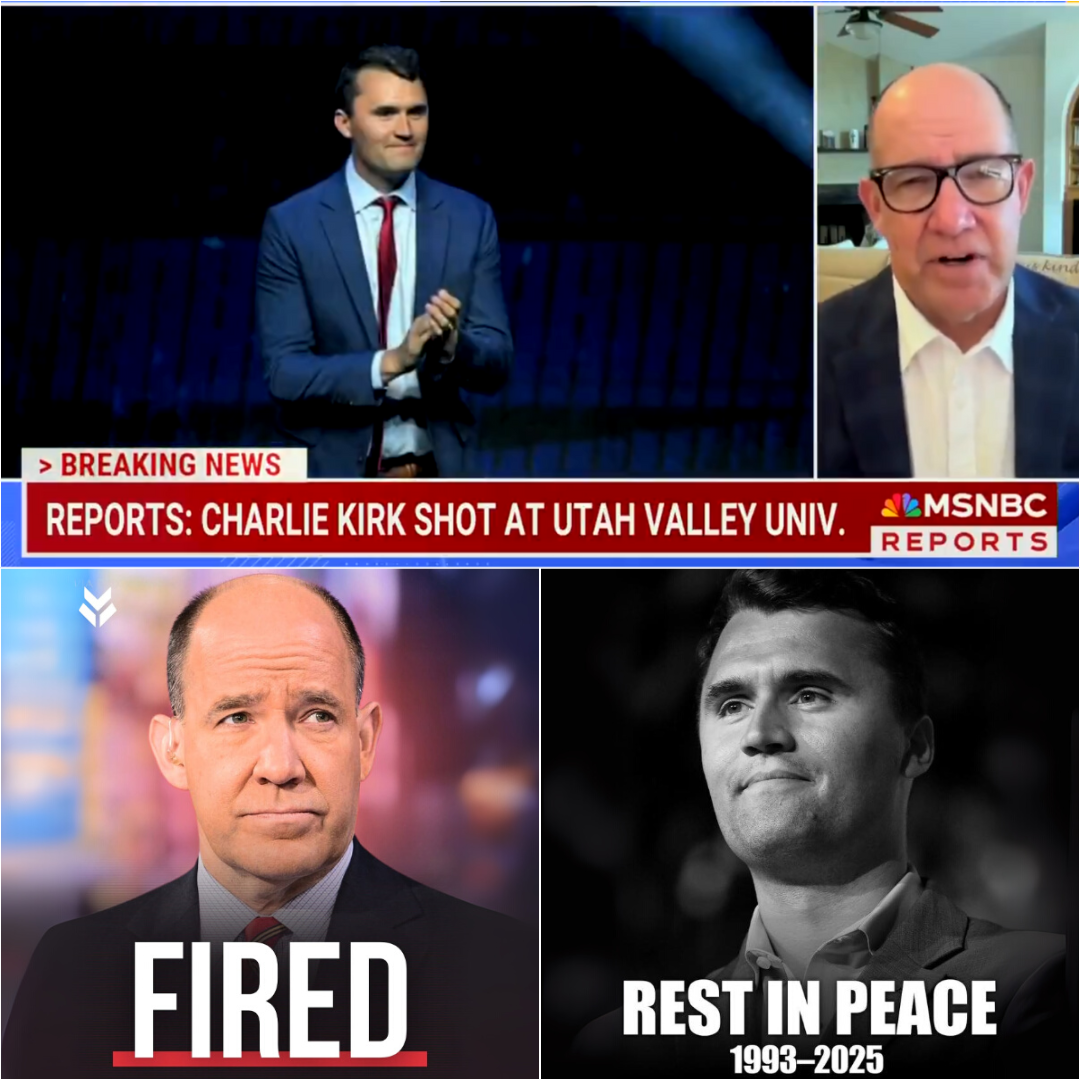
The first images from Utah Valley University were still looping on screens across America — students fleeing, parents clutching children, a stage abandoned mid-sentence — when another broadcast froze the country for a different reason.
It wasn’t a bullet. It wasn’t the chaos in the arena. It was a sentence.
Matthew Dowd sat beneath the bright studio lights, tasked with filling the void between fragments of fact and endless speculation. The anchor turned to him, searching for clarity. What came out instead was a line that carried heavier than gunfire — because it suggested something no grieving family should hear in the hours after a loved one falls.
He said it plainly, without malice, almost like a professor explaining a theory. And yet, when those words left his mouth, the air around him thickened. Producers shifted in their seats. The anchor’s face tightened. Viewers at home leaned forward, uncertain if they’d heard him right.
By nightfall, an apology appeared online. By morning, the network cut him loose.
A career — built on decades of political work, commentary, and books — gone in the space of a single breath.
The reaction wasn’t only about politics. It wasn’t only about Charlie Kirk. It was about timing. About tone. About the one thing people on all sides agreed upon: you do not reduce a human life to a footnote while the blood is still warm.
Conservatives called it cruelty. Liberals called it clumsy. But everyone called it wrong.
For Dowd, the humiliation was swift. His face became the clip replayed endlessly, his sentence dissected in headlines, on podcasts, in dinner-table conversations. The narrative spread faster than the facts of the shooting itself. What exactly did he mean? Did he intend to blame? Or was it simply the wrong words at the worst possible moment?
Those questions lingered, unanswered, heavier than his apology.
Inside MSNBC, the fallout was described by one staffer as “radioactive.” Emails poured in, demanding answers. Advertisers called. Executives held emergency calls past midnight. “It wasn’t just about what he said,” one producer admitted later. “It was the fact that he said it while a man’s family was still waiting to hear if he was alive.”
The optics were unbearable. The clip showed up alongside footage of Kirk’s widow at a candlelight vigil, her daughter’s small hand gripping hers. The contrast was brutal.
And so, before the morning sun rose over Manhattan, the decision was made. The analyst was out.
The story might have ended there, just another career undone by words spoken in the wrong moment. But this time, something else stuck.
Because beyond the outrage, beyond the firing, beyond the endless headlines, Dowd’s sentence exposed a deeper fracture — not left versus right, but humanity versus spectacle.
Somewhere along the way, America had become fluent in outrage and numb to grief. Deaths turned into hashtags. Funerals became talking points. And in the rush to explain, justify, or weaponize, the most basic truth had been blurred: a human life is not expendable.
At vigils across the country, that truth reasserted itself. Strangers lit candles in silence, their faces lit by flickering flames rather than the glow of phone screens. In Utah, students wrote messages in chalk: “Violence is not the answer.” In Texas, a church bell tolled for a man many in the congregation had never met.
And in living rooms across America, parents struggled to explain to children not the politics, not the broadcast fallout, but the simplest lesson of all: a person is gone, and that matters.
Dowd’s sentence will be remembered not just for its words but for what it revealed. That even in a nation divided, there are still boundaries we cannot cross. That disagreement can be fierce, that rhetoric can be sharp, but that mocking or diminishing a death strips us of something far more precious than political points — it strips us of our shared humanity.
He paid with his career. But the country paid too, reminded once again how fragile compassion has become in a landscape built on noise.
In the end, what destroyed Matthew Dowd was not just what he said. It was what the country needed least in that moment: another reason to forget the sanctity of life, another excuse to talk before listening, another crack in the wall of empathy already eroded by years of conflict.
Charlie Kirk’s family will carry their grief for a lifetime. The nation will carry the scars of another political killing. And Matthew Dowd will carry the knowledge that sometimes, silence would have been the only humane choice.
Because careers can be rebuilt. Reputations can be restored. But a life lost is forever.
“We can argue beliefs all day,” a mourner said at a vigil, candlelight trembling in her hand, “but death is not debate. And if we forget that, we lose more than politics — we lose ourselves.”
News
Millionaire CEO Gets Into The Car And Hears A Little Girl Tell Him To Shut Up—The Reason Was…
The black sedan gleamed under the late afternoon Manhattan sun, a polished machine waiting outside the mirrored tower of Miller…
Kirk Assassination: Comprehensive Analysis of New Video Evidence Challenging the Official Narrative
The assassination of Charlie Kirk has sent shockwaves through the American public, raising countless unanswered questions about what truly happened…
Inside the Studio Freeze: How Stephen Colbert Exposed the Hidden Chains Behind Late-Night TV
“The joke wasn’t a joke at all — it was the sound of chains clinking behind the curtain.” Stephen Colbert…
Inside Disney’s Standoff: Jimmy Kimmel’s Return Set for September 23 With Hidden Terms
THE SHOW DIDN’T JUST RETURN — IT WAS DRAGGED BACK, WITH CHAINS STILL ATTACHED. For six nights, America’s most-watched late-night…
Maddow, Colbert, and Kimmel Just Walked Away From the System — And Launched a Newsroom That Has Networks Shaking
The Night Television Tore Down Its Own Walls The lights above the stage were supposed to signal business as usual—another…
“Let My Dad Go and I’ll Make You Walk” — The Court Laughed… Until They Saw the Judge Get Up Alone…
“Let my dad go… and I’ll make you walk.” The words were too fragile to carry in a room built…
End of content
No more pages to load

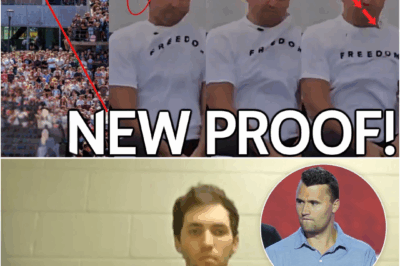
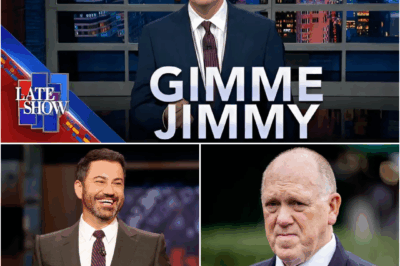
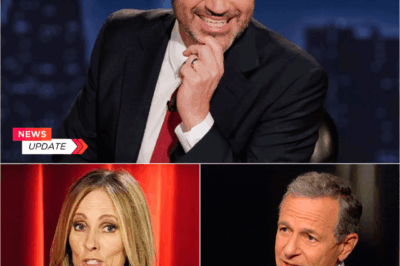
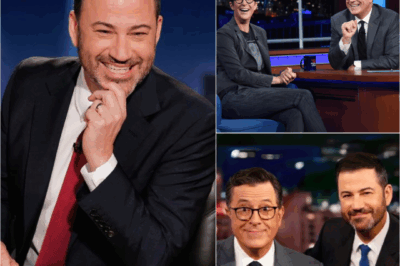
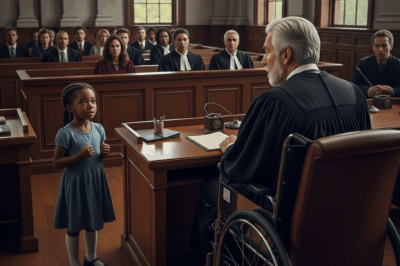
Leave a Reply